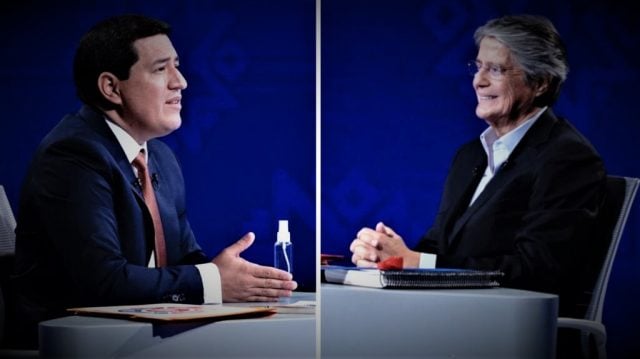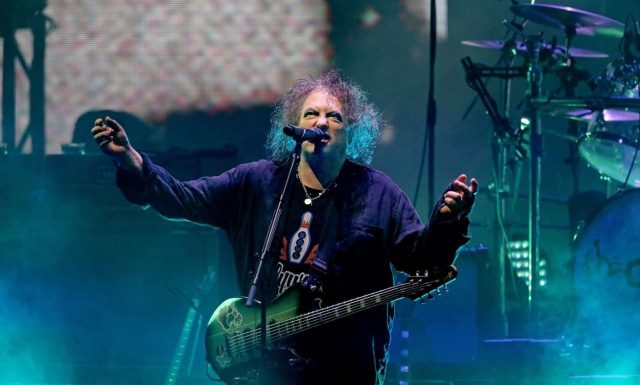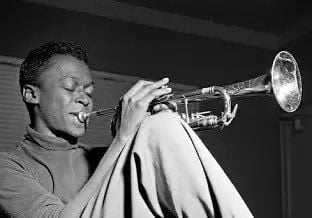Next Sunday, April 11, Ecuador will elect the country’s new president for the governmental period 2021-2025. This will be the second round in search of the new president, after the first round, held on February 7, when none of the 16 candidates got enough votes to become the winner.
In a report written by the correspondent of RT in Ecuador, Edgar Romero, the electoral process of next Sunday is explained and the conditions in which the two most voted candidates arrive from the first presidential round that took place last February.
One of the candidates is Andrés Arauz, candidate for the Union por la Esperanza (UNES) coalition, which brings together the Correismo, and which obtained 3,033,791 votes in the first round, 32.72% of the total. He is a 36-year-old young man, an economist who has already served in the public administration, since he was in charge of the Ministries of Knowledge and Human Talent and Culture and Heritage, during the Presidency of Rafael Correa. If he wins, he would become the youngest president in the history of the country, after Juan José Flores, the first president of the Republic of Ecuador, in 1830, who took office before reaching the age of 30.
The other is Guillermo Lasso, 65, of the Creando Oportunidades movement (CREO), in alliance with the Christian Social Party (PSC), which reached 1,830,172 votes, 19.74%, in February. It is the third time that this candidate seeks to reach the Presidency of Ecuador, after being candidate in 2013 and 2017; He is a person who has always been associated with financial holding companies and, in particular, with the Banco de Guayaquil; he is also associated with the government of Jamil Mahuad, of which he was «super minister of Economy», just months after the 1999 banking holiday in the country.
Two opposing models
In these elections «two ways of seeing the world, society, the economy and democracy are faced», says historian and political analyst Juan Paz y Miño.
He details that Arauz «represents the social economy model, which seeks the ‘Sumak Kawsay’ (Kichwa neologism that refers to ‘Good Living’)», postulated by the Ecuadorian Constitution of 2008.
With this, says the analyst, the UNES candidate intends to «recover State capacities for the good provision of goods and services for citizens, in addition to strengthening institutions and democracy».
On the other hand, Lasso «offers the continuity of the business, neoliberal and oligarchic model», rebuilt since 2017 with the coming to power of the current president, Lenín Moreno, which, according to Paz and Miño, has had «serious» social consequences for the broader sectors of the national population, in accordance with the country’s historical experience.
Specifically – Paz y Miño adds – Lasso intends «to continue the downsizing of the State, privatizations and the inevitable weakening that this brings to public institutions», as has happened in the last four years. He points out that the «criterion of democracy» of this presidential candidate «reinforces the despotism of capital over society».
“While the candidate Arauz represents a vision with a future, the candidate Lasso shows a communication with the old past, subject to the slogans and demands of the country’s social elites, who are not willing to lose the bases of their power and hegemony «, emphasizes the analyst.
Two fundamental challenges for Ecuador
Anyone who is elected on April 11 faces two fundamental challenges, which are «to confront, on the one hand, the health crisis and, closely linked to it, on the other hand, the economic crisis», says the sociologist and professor at the Central University of Ecuador, David Chávez.
This health crisis is the one that has been generated in the last year due to the coronavirus pandemic. Currently, the country faces a new wave of infections, according to the Ministry of Public Health (MSP). Until this Wednesday, April 7, 339,604 infected were registered, of which 10,849 were confirmed in the last week; Meanwhile, the death toll rose to 17,057 -12,158 confirmed and 4,899 probable due to covid-19-.
Last Monday, the Secretary of Health of the Municipality of Quito, Ximena Abarca, reported that in the Ecuadorian capital “there is a complete saturation of the hospital system, with a waiting list of patients for both general beds and ICU beds (intensive care units). ) which is important».
In Guayaquil, the city hardest hit at the beginning of the pandemic in the country in March and April 2020, the scenario is similar. Carlos Farhat, coordinator of Municipal Health, said that the ICUs of all the hospitals and private clinics in the city are at their maximum capacity.
Although the country began to vaccinate against the coronavirus more than two months ago, specifically on January 21, until April 4, of the more than 500,000 doses that have arrived – according to figures from the MSP itself – 211,720 have received the vaccine, of which only 89,349 have completed their immunization process, with the two required doses.
Currently, eight provinces of the country – Azuay, Guayas, El Oro, Esmeraldas, Manabí, Pichincha, Loja and Santo Domingo de los Tsáchilas – are under a «State of exception», decreed by President Moreno. In these entities, there is a curfew, vehicle restriction, prohibition of mass events, among other measures.
With this scenario, 13,099,150 Ecuadorians are called to go to the polls next Sunday. In the country, voting is compulsory for people between 18 and 65 years old. Added to this health crisis is the difficult economic situation, which is not only a product of the pandemic, but is also a «provoked crisis», says Chávez, due to the «dismantling of the State» due to the start-up of a «neoliberal policy».
For this analyst, the Moreno government «is the neoliberal project that has advanced the furthest in all recent history in Ecuador; that is to say, it is the most radical neoliberal project». He points out that by applying this neoliberal model «the richest in this country have won in the midst of the crisis»; meanwhile, those who have been affected are «the majority of the middle classes and the popular sectors».
«This is how capitalist society works», emphasizes Chávez and mentions that among the challenges facing the next president, who will take office on May 24, is to accelerate the immunization process against the coronavirus. «Vaccination is essential, because, in addition, it would make it possible to resume normal activities and, therefore, allow the long-awaited economic reactivation».
Also, apply recommendations that have even been made by the International Monetary Fund (IMF), regarding «putting emerging taxes on the richest, who are winning, while the rest of society loses».
«This accumulation and concentration of wealth must be controlled in a situation as critical and serious as this one, in order to demand solidarity from the richest and allow transfers and economic policies that make it possible for the middle sectors and the popular sectors to recover certain economic conditions moderately acceptable and, in addition, allow the reactivation of the economy in general», he stated.
Two projects for Ecuador
During the campaign, Lasso has emphasized that with his candidacy he seeks that Ecuador does not «become» another Venezuela. In one of the presidential debates, this candidate told Arauz: “When you take out that little book of the Constitution, you look very similar to [Nicolás] Maduro, just like [Hugo] Chávez and Maduro, that’s what we want to avoid in Ecuador, your symbols and your presence clearly remind us of a totalitarian system, Andrés».
In response, Arauz commented: «Mr. Lasso’s campaign is still installed in fear, they repeat a message that has not worked, they repeat the bogeyman (ghost) of Venezuela and Maduro».
In proselytizing acts, moreover, promises have abounded. For example, Lasso has promised to vaccinate 9 million Ecuadorians in the first 100 days of his government; meanwhile, Arauz proposes to immunize 2.5 million citizens monthly, with vaccines that, he assures, are pre-arranged with various providers.
Lasso has also proposed raising the minimum wage to $500, from the current 400; A promise that does not coincide with what he himself said in November 2019, when he pointed out that raising this salary «will only generate more unemployment and informality in the country».
But beyond those slogans launched in the campaign, there are governmental plans that were presented by the candidates to the National Electoral Council (CNE), an organization that has made these documents available to citizens on its website.
Health
The CREO candidate plans to delegate hospital management to the private sector. On the contrary, its work plan says that this will guarantee «universal and free access to health as well as the efficient use of resources in the health system» and «will generate greater competitiveness in the provision of health services offered and improve quality standards».
Arauz, within his vision «to achieve good living», insists on the gratuitousness of the health system. Specifically, he speaks of «rebuilding the capacity of the public sector to provide essential services», including health.
Social Security
Lasso, for example, proposes «structural reforms» to the country’s social security system, currently in the hands of the public Ecuadorian Social Security Institute (IESS). In his work plan he speaks of a «private savings» system that is, together with the public system, at the «choice of all Ecuadorians»; the proposal is based on noting that «various international experiences» show that this complementary system «invigorates the securities markets». He has publicly said that «Ecuadorians deserve to be certain that when they retire they will have a decent pension».
Arauz – for his part – in his government plan, without further details, mentions «social security coverage for all». In his public speeches, he has indicated that he will ensure that there are more contributions to ensure that social security is universal.
job
During the campaign, Lasso has promised the creation of 2 million jobs during his tenure; however, in his work plan he indicates that his proposal «has the objective of generating at least one million productive jobs». In addition, on several occasions he calls for the establishment of new contracting «modalities» or «mechanisms», which translates into labor flexibility.
Meanwhile, Arauz indicates that, among others, «the first measures should focus on employment». In addition, he refers to creating hundreds of thousands of jobs, through the transformation of the country’s energy matrix.
Education
Lasso proposes a reform of the Intercultural Education law and at least 900 rural schools in the country will be retaken and strengthened; while he emphasizes in improving the university access process, although he does not specify how in the document, in which he does indicate that they will guarantee «the academic independence of universities from their regulatory entities».
Arauz, as in other areas, mentions the need to recover and rebuild the capacity of the public sector to provide quality education.
Housing
Lasso says in his work plan that there is a deficit of 2 million Ecuadorians who currently do not have a home. To solve this problem, he proposes to establish incentives so that «together with the participation of specialized companies, affordable and quality housing solutions are offered»; He also speaks of mechanisms «for financial entities to support a social housing construction plan».
Arauz refers to «functional housing in optimal conditions for everyone».
Economy
Lasso speaks of «financial modernization», in which he proposes «to promote competition, that is, to promote the arrival of international banks in the country». He says that «Ecuador can and should become a world financial center», to benefit from better access to financing and connection with the world financial market and generate investment and foreign exchange flows for the economy.
He also talks about reducing public spending. On this point, he mentions actions such as reducing unproductive spending, targeting state bonds, eliminating corruption ‘spending’ in public procurement, removing unproductive bureaucracy, and carrying out a tax reform.
Meanwhile, the government plan presented by Arauz says that, «the State must play a role in the economic and productive reactivation». In the plan, Arauz points out that it is essential «to face the current scenario of economic debacle with a broad social agreement so as to generate wealth by strengthening the productive and innovative capacities», which includes stabilizing growth and aggregate production levels, recovering and deepening instruments to manage the liquidity of the economy that protect dollarization and promote the transition to a post-oil economy.
Both candidates have also offered to eliminate the 2% tax on gross income required of micro-enterprises, which was included in the Tax Simplification and Progressivity Law at the end of 2019, after a vote in Parliament, which was supported by the CREO legislators.
The media campaign
The Citizen Participation Corporation released, on April 1, a monitoring report of the electoral campaign that it made to 11 television stations in the country, during the week of March 22 to 28.
In that period, it found 90 spots in favor of Lasso, with 30 minutes of exposure; meanwhile, there were barely 45 ads by Arauz, which accumulated 21 minutes and 20 seconds.
Regarding interviews, in that week 73 minutes 43 seconds were dedicated to both candidates, of which 62 minutes and 51 seconds were for the CREO representative and 14 minutes and 43 seconds for the UNES candidate.
Whoever is elected as the new president on Sunday will replace, as of May 24, President Moreno.












